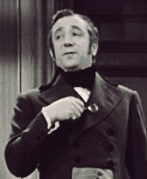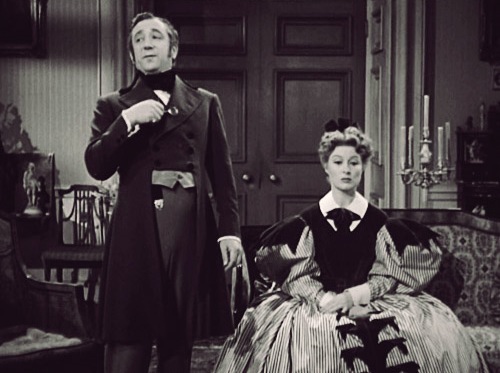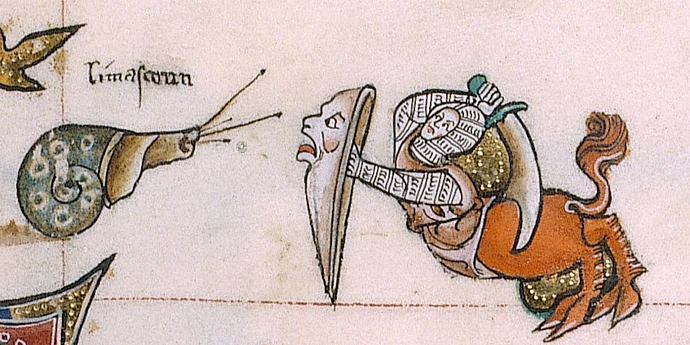Feels about normal to me.
Again with the ABBA?
~starts searching for her lovely karabela, muttering Russian curses under her breath~
ALWAYS WITH THE ABBA.
care to dance?
~stops searching for her sword~
What the hell, why not?
~starts dancing with the Ratchet~

You get next pick on jukebox, but if I may make an suggestion…
Fuckin’ hell, ABBA again?!
'Ere, I think I’ve played this tune before:
You drank all your booze and half of mine
I’m bleary eyed and you’re waiting for the sunshine (to come and kill me)
Just like the man who threw me on the floor
Don’t matter, while I’m down here I might as well try and find the fucking door
Excuse me, have you seen it? it’s about this big
And have you got a plastic bag 'cause I’m gonna be sick
I’m dead drunk and heave’n hanging upside down
And you’re getting up and leaving, you think I’m gonna drown
Carry me home
Yeah won’t you carry me home
(I need your help)
Carry me home
The Gathering calls all remaining Immortals to face each other to contest The Prize and the fate of the mortal world. Centuries of existence, wisdom, and prowess are placed as ante in the hope of persisting a few moments longer. Through a combination of cunning, faith, and subtlety, these Immortals finally faced each other somewhere in the City of Eight Million Stories.
Other Pendragon (@teknocholer) raised his blade against Myfanwy
Mr. Collins (@David_Falkayn) entered the fracas to challenge Zero Demos (@daneel)
Jane (@MalevolentPixy) and Ennis (@gwwar) reluctantly face each other
If you haven’t already submitted stance orders for this turn, please do so by 2300 EST on Sat Nov 11 . Turn 7 will consist of eleven combat rounds.
Today, while many of you ponder how I will use my Inner Weapons to constructively engage the Outer Struggle, I Invite you to a master class infFriend’s Pacifism.
After George Fox himself, arguably the most forceable proponent of what we know call “Quakerism” was the Scot Robert Barclay, from the “second generation” of Quakers.
Robert’s English is not quite modern, which makes him hard to read. Also, He relies heavily on Christian references because he was speaking to a 17th century English audience. That is but a detail – one can build essentially the same argument from Hindu, Buddhist, Islamic, or myriad of other sources.
Perhaps the most import passage for us is from his crucial Apologetics of 1678.
“From all which it naturally follows that all men, even the heathen, may be saved: for Christ was given as a “Light to enlighten the Gentiles” (Isa. 49:6). Now to say that though they might have been saved yet none were, is to judge too uncharitably. I see not what reason can be alleged for it; yea, though it were granted, which never can be, that none of the heathen were saved, it will not from thence follow that they could not have been saved; or that none now in their condition can be saved. For, A non esse ad non posse non datur sequela, i.e., That consequence is false that concludes a thing cannot be because it is not.”
In more compact, modern idioms.
Anyone can be “saved” - that is, we all have a “divine spark” (or life force or existential will – choose what seems right to you). Just because some isn’t or wasn’t “saved” doesn’t mean they couldn’t be saved.
The consequence: all beings have potential to be better – unless you kill them. Hence, killing someone is the worst possible way to improve people, and therefore your world.
-Mr Collins.

For those who wish a “deep dive”, here is a complete passage:
From whence it appears that though many receive not the Light (as the darkness comprehends it not) nevertheless this saving Light shines in all that it may save them. Concerning which also Cyril of Alexandria saith well, and defends our principle. “With great diligence and watchfulness,” saith he, “doth the apostle John endeavour to anticipate and prevent the vain thoughts of men; for there is here a wonderful method of sublime things and overturning of objections, he had just now called the Son the true Light, by whom he affirmed that every man coming into the world was enlightened; yea that he was in the world and the world was made by him. One may then object, if the Word of God be the Light and if this Light enlighten the hearts of men and suggest unto men piety and the understanding of things; if he was always in the world and was the creator or builder of the world, why was he so long unknown unto the world? It seems rather to follow because he was unknown to the world, therefore the world was not enlightened by him, nor he totally Light. Lest any should so object he divinely infers, ‘and the world knew him not.’ Let not the world,” saith he, “accuse the Word of God, and his eternal Light, but its own weakness: for the Son enlightens, but the creature rejects the grace that is given unto it and abuseth the sharpness of understanding granted it by which it might have naturally known God, and as a prodigal hath turned its sight to the creatures, neglecting to go forward, and through laziness and negligence buried the illumination and despised this grace. Which, that the disciple of Paul might not do, he was commanded to watch; therefore it is to be imputed to their wickedness who are illuminated, and not unto the Light; for as, albeit the sun riseth upon all, yet he that is blind receiveth no benefit thereby; none thence can justly accuse the brightness of the sun, but will ascribe the cause of not seeing to the blindness; so I judge it is to be understood of the only begotten Son of God, for he is the true Light and sendeth forth his brightness upon all; but the god of this world, as Paul saith, hath blinded the minds of those that believe not (2 Cor. 4:4), that the Light of the Gospel shine not unto them. We say then that darkness is come upon men not because they are altogether deprived of Light; for nature retaineth still the strength of understanding divinely given it, but because man is dulled by an evil habit and become worse, and hath made the measure of grace in some respect to languish. When therefore the like befalls to man, the Psalmist justly prays, crying ‘Open mine eyes that I may behold the wonderful things of thy law.’ For the law was given that this Light might be kindled in us, the blearedness of the eyes of our minds being wiped away and the blindness being removed which detained us in our former ignorance. By these words, then, the world is accused as ungrateful and insensible, not knowing its Author nor bringing forth the good fruit of the illumination; that it may now seem to be said truly of all, which was of old said by the prophet of the Jews, I expected that it should have brought forth grapes, but it brought forth wild grapes. For the good fruit of the illumination was the knowledge of the Only-Begotten, as a cluster hanging from a fruitful branch,” &c.s
From which it appears, Cyril believed, that a saving illumination was given unto all. For, as to what he speaks of nature, he understands it not of the common nature of man by itself, but of that nature which hath the strength of understanding divinely given it: for he understands this universal illumination to be of the same kind with that grace of which Paul makes mention to Timothy, saying, “Neglect not the grace that is in thee.” Now, it is not to be believed, that Cyril was so ignorant, as to judge that grace to have been some natural gift.
But to those arguments by which it hath been proved that all men have a measure of saving grace, I shall add one, and that very observable, not yet mentioned, viz, that excellent saying of the apostle Paul to Titus (2:11), “The grace of God that brings salvation hath appeared to all men; teaching us that denying ungodliness and worldly lusts, we should live soberly, righteously, and godly in this present world.” Than which there can be nothing more clear, it comprehending both the parts of the controversy. First, it testifies that it is no natural principle or light, but saith plainly, “it brings salvation.” Secondly, it says not that it hath appeared to a few, but unto all men. The fruit of it declares also how efficacious it is, seeing it comprehends the whole duty of man. It both teacheth us first to forsake evil, to deny ungodliness and worldly lusts; and then it teacheth us our whole duty. First, to live soberly, that comprehends temperance, chastity, meekness, and those things that relate unto a man’s self. Secondly, righteously, that comprehends equity, justice, and honesty, and those things which relate to our neighbours. And lastly, godly; which comprehends piety, faithfulness, and devotion, which are the duties relating to God. So then there is nothing required of man or is needful to man which this grace teacheth not. Yet I have heard a public preacher, one of those that are accounted zealous men, to evite the strength of this text, deny this grace to be saving, and say it was only intended of common favours and graces such as is the heat of the fire and outward light of the sun. Such is the darkness and ignorance of those that oppose the Truth, whereas the text saith expressly that it is saving. Others, that cannot deny but it is saving, allege this “all” comprehends not every individual but only all kinds. But is a bare negation sufficient to overturn the strength of a positive assertion? If the Scriptures may be so abused, what so absurd as may not be pleaded for from them? or what so manifest as may not be denied? But we have not reason to be staggered by their denying so long as our faith is found in express terms of the Scripture; they may as well seek to persuade us that we do not intend that which we affirm, though we know the contrary, as make us believe that when the apostle speaks forth our doctrine in plain words yet he intends theirs, which is quite the contrary, and indeed, can there be anything more absurd than to say, where the word is plainly “all,” few is only intended. For they will not have “all” taken here for the greater number. Indeed, as the case may be sometimes, by a figure “all” may be taken of two numbers for the greater number; but let them show us, if they can, either in Scripture, or profane or ecclesiastical writings, that any man that wrote sense did ever use the word “all” to express, of two numbers, the lesser. Whereas they affirm that the far lesser number have received saving grace; and yet will they have the apostle, by “all,” to have signified so. Though this might suffice, yet to put it further beyond all question, I shall instance another saying of the same apostle that we may use him as his own commentator (Rom. 5:18): “Therefore as by the offence of one judgment came upon all men to condemnation, even so by the righteousness of one the free gift came upon all men unto justification of life.” Here no man of reason, except he will be obstinately ignorant, will deny but this similitive particle “as” makes the “all,” which goes before and comes after, to be of one and the same extent. Or else let them show one example, either in Scripture or elsewhere, among men that speak proper language, where it is otherwise. We must then either affirm that this loss which leads to condemnation hath not come upon all; or say that this free gift is come upon all by Christ. Whence I thus argue, First,
Arg. If all men have received a loss from Adam, which leads to condemnation; then all men have received a gift from Christ, which leads to justification:
But the first is true;
Therefore also the last.
From all which it naturally follows that all men, even the heathen, may be saved: for Christ was given as a “Light to enlighten the Gentiles” (Isa. 49:6). Now to say that though they might have been saved yet none were, is to judge too uncharitably. I see not what reason can be alleged for it; yea, though it were granted, which never can be, that none of the heathen were saved, it will not from thence follow that they could not have been saved; or that none now in their condition can be saved. For, A non esse ad non posse non datur sequela, i.e., That consequence is false that concludes a thing cannot be because it is not.
The 16th proposition also has some good arguments: http://www.qhpress.org/texts/barclay/apology/prop15.html
“Sixthly, The last thing to be considered is revenge and war, an evil as opposite and contrary to the Spirit and doctrine of Christ as Light to darkness. For as is manifest by what is said, through contempt of Christ’s law the whole world is filled with various oaths, cursings, blasphemous profanations, and horrid perjuries; so likewise through contempt of the same law the world is filled with violence, oppression, murders, ravishing of women and virgins, spoilings, depredations, burnings, vastations, and all manner of lasciviousness and cruelty; so that it is strange that men made after the Image of God should have so much degenerated that they rather bear the image and nature of roaring lions, tearing tigers, devouring wolves, and raging boars than of rational creatures endued with reason: and is it not yet much more admirable that this horrid monster should find place and be fomented among those men that profess themselves disciples of our peaceable Lord & Master, Jesus Christ, who by excellency is called the Prince of Peace and hath expressly prohibited his children all violence, and on the contrary commanded them that according to his example they should follow patience, charity, forbearance, and other virtues worthy of a Christian.
Hear then what this great Prophet saith, whom every soul is commanded to hear under the pain of being cut off (Matt. 5:38 to the end of the chapter). For thus he saith: “Ye have heard that it hath been said, an eye for an eye, and a tooth for a tooth. But I say unto you, That ye resist not evil: but whosoever shall smite thee on thy right cheek, turn to him the other also. And if any man will sue thee at the law, and take away thy coat, let him have thy cloak also. And whosoever shall compel thee to go a mile, go with him twain. Give to him that asketh thee; and from him that would borrow of thee turn not thou away. Ye have heard that it hath been said, Thou shalt love thy neighbor and hate thine enemy: But I say unto you, Love your enemies, bless them that curse you, do good to them that hate you, and pray for them which despitefully use you and persecute you. That ye may be the children of your Father which is in heaven: for he maketh his sun to rise on the evil, and on the good, and sendeth rain on the just, and on the unjust. For if ye love them which love you, what reward have ye? Do not even the publicans the same? And if ye salute your brethren only, what do you more than others? Do not even the publicans so? Be ye therefore perfect, even as your Father which is in heaven is perfect.”
……
Nevertheless because some, perhaps through inadvertency, and by the force of custom and tradition, do transgress this command of Christ, I shall briefly show how much war doth contradict this precept, and how much they are inconsistent with one another, and consequently that war is no ways lawful to such as will be the disciples of Christ. ForFirst, Christ commands that we should “love our enemies”;k but war, on the contrary, teacheth us to hate and destroy them.
Secondly the apostle saith that “we war not after the flesh,” and that "we fight not with flesh and blood."l But outward war is according to the flesh, and against flesh and blood, for the shedding of the one and destroying of the other.
Thirdly, the apostle saith that "the weapons of our warfare are not carnal, but spiritual."name=“t8”>m 8 But the weapons of outward warfare are carnal, such as cannon, muskets, spears, swords, &c., of which there is no mention in the armour described by Paul.
Fourthly, because James testifies, that wars and strifes come from the lusts, which war in the members of carnal men:n But Christians, that is, those, that are truly saints, "have crucified the flesh, with its affections and lusts."o Therefore they cannot indulge them by waging war.
Fifthly, because the prophets Isaiah and Micah have expressly prophesied, that in the mountain of the house of the Lord, Christ shall judge the nations, and then “they shall beat their swords into ploughshares,” &c.,p and the ancient Fathers of the first three hundred years after Christ did affirm these prophecies to be fulfilled in the Christians of their times, who were most averse from war, concerning which Justin Martyr, Tertullian, and others may be seen: which need not seem strange to any, since Philo Judaeus abundantly testifies of the Essenes, that “there was none found among them, that would make instruments of war.” But how much more did Jesus come, that he might keep his followers from fighting, and might bring them to patience and charity.
Sixthly, because the prophet foretold that there should “none hurt nor kill in all the Holy Mountain” of the Lord:q But outward war is appointed for killing and destroying.
Seventhly, because Christ said that “his Kingdom is not of this world,” and therefore that "his servants shall not fight:"r Therefore those that fight are not his disciples nor servants.
Eighthly, because he reproved Peter for the use of the sword, saying, "Put up again thy sword into his place: for all they that take the sword, shall perish with the sword."s Concerning which Tertullian speaks well (lib. de idol.), “How shall he fight in peace without a sword, which the Lord did take away? For although soldiers came to John and received a form of observation, if also the centurion believed afterwards, he disarmed every soldier in disarming of Peter.” Idem., de Coron. Mil. asketh, “shall it be lawful to use the sword, the Lord saying that he that useth the sword shall perish by the sword?”
Ninthly, because the apostle admonisheth Christians, that they defend not themselves, neither revenge by rendering evil for evil, but give place unto wrath, because vengeance is the Lord’s: “Be not overcome of evil, but overcome evil with good. If thine enemy hunger, feed him: if he thirst, give him drink”:t But war throughout teacheth and enjoineth the quite contrary.
Tenthly, because Christ calls his children to bear his cross,u not to crucify or kill others: to patience not to revenge: to Truth and simplicity, not to fraudulent stratagems of war, or to play the sycophant, which John himself forbids: to flee the glory of this world; not to acquire it by warlike endeavours: Therefore war is altogether contrary unto the Law and Spirit of Christ.
I welcome your discussion and comments.
–Yours in Truth,
Mr Collins.

Watch out, Zero @daneel! If he don’t bore ye to death, he’ll put ye to sleep then slit yer gizzard with a letter opener!
Looking forward to your new roommate?
A traveller wended the wilds among,
With a purse of gold and a silver tongue;
His hat it was broad, and all drab were his clothes,
For he hated high colors — except on his nose,
And he met with a lady, the story goes.
Heigho! yea thee and nay thee.
The damsel she cast him a merry blink,
And the traveller nothing was loth, I think,
Her merry black eye beamed her bonnet beneath,
And the Quaker, he grinned, for he’d very good teeth,
And he asked, " Art thee going to ride on the heath? "
" I hope you’ll protect me, kind sir, " said the maid,
" As to ride this heath over, I’m sadly afraid;
For robbers, they say, here in numbers abound,
And I wouldn’t for anything I should be found,
For, between you and me, I have five hundred pound. "
" If that is thee own, dear, " the Quaker, he said,
" I ne’er saw a maiden I sooner would wed;
And I have another five hundred just now,
In the padding that’s under my saddle-bow,
And I’ll settle it all upon thee, I vow! "
The maiden she smil’d, and her rein she drew,
" Your offer I’ll take, but I’ll not take you, “
A pistol she held at the Quaker’s head —
” Now give me your gold, or I’ll give you my lead,
'Tis under the saddle, I think you said. "
The damsel she ripped up the saddle-bow,
And the Quaker was never a quaker till now!
And he saw, by the fair one he wished for a bride,
His purse borne away with a swaggering stride,
And the eye that shamm’d tender, now only defied.
" The spirit doth move me, friend Broadbrim, " quoth she,
" To take all this filthy temptation from thee,
For Mammon deceiveth, and beauty is fleeting,
Accept from thy maiden this right-loving greeting,
For much doth she profit by this Quaker’s meeting!
" And hark! jolly Quaker, so rosy and sly,
Have righteousness, more than a wench, in thine eye;
Don’t go again peeping girls’ bonnets beneath,
Remember the one that you met on the heath,
Her name’s Jimmy Barlow, I tell to your teeth. "
" Friend James, " quoth the Quaker, " pray listen to me,
For thou canst confer a great favor, d’ye see;
The gold thou hast taken is not mine, my friend,
But my master’s; and truly on thee I depend,
To make it appear I my trust did defend.
" So fire a few shots thro’ my clothes, here and there,
To make it appear ‘twas a desp’rate affair. “
So Jim he popp’d first through the skirt of his coat,
And then through his collar — quite close to his throat;
” Now one thro’ my broadbrim, " quoth Ephraim, " I vote. "
" I have but a brace, " said bold Jim, " and they’re spent,
And I won’t load again for a make-believe rent. " —
" Then! " — said Ephraim, producing his pistols, " just give
My five hundred pounds back, or, as sure as you live,
I’ll make of your body a riddle or sieve. "
Jim Barlow was diddled — and, tho’ he was game,
He saw Ephraim’s pistol so deadly in aim,
That he gave up the gold, and he took to his scrapers,
And when the whole story got into the papers,
They said that " the thieves were no match for the Quakers . "
Heigho! yea thee and nay thee.
The Quaker’s Meeting
– Samuel Lover
I’d love to read all that, but

Although it’s worth noting that Captain Pacifist up there picked a fight with me. He’s the perceptive one around here.
(out of character: Thank You, tekno. I am crying into my keyboard. thank you )
Yes, Zero, I seek you out. I have known you over two millennia. I still see the beautiful Inner Light that shines from you, even when you try to hide it from others, or perhaps yourself.
When we meet, and we will, I will be devoid of weapons, as always.
We will talk. Maybe you will kill me. Or maybe this strife you seek will continue to diminish you, perhaps to the point of your own unnecessary demise. Maybe in my death, you will regain your will to walk to better place. If so, I joyfully embrace that oucome. You can put Agnus Dei on my headstone.
Love will make this a better world. I seek you out to remind you what you already know:
Love surrounds us. We only need to take a breath to let it in.
Yours in Truth,
-Mr. Collins

